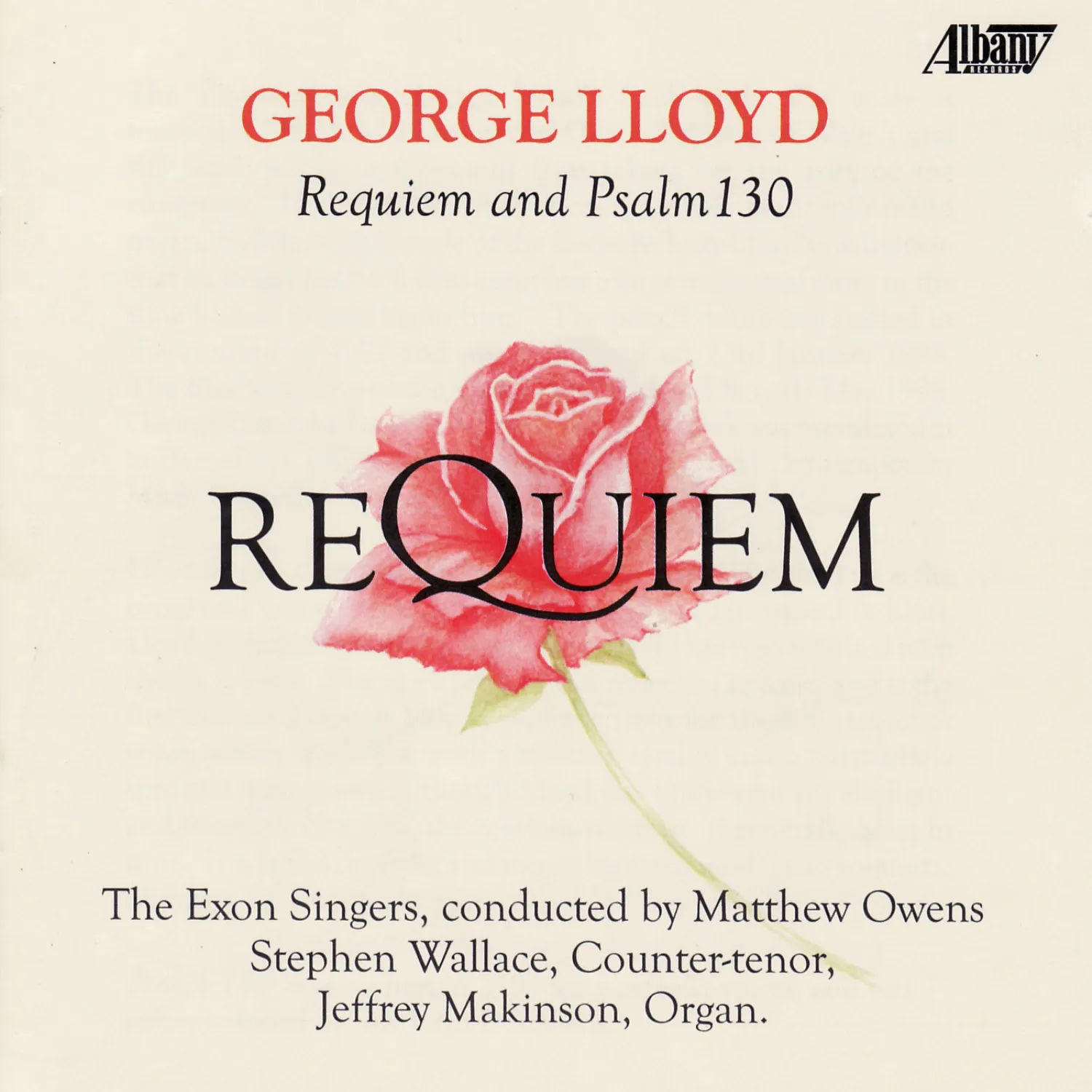A Requiem for Princess Diana
Alas, for George Lloyd as well.
His Requiem is the composer's last composition, finished shortly before his death. The work is also dedicated to the unfortunate passing of Princess Diana.
As the last of the composer's large-scale choral works I am covering, Lloyd's Requiem couldn't be more different compared to the others, and for that matter, so too the paired Psalm 130.
If you like a more subtle musical setting of the Requiem Mass, akin to that from Fauré or Rutter, this one should satisfy. Lloyd's writing here is conservative, especially considering the full-throated, often climax-laden Symphonic Mass, Litany, and Vigil of Venus which preceded it.
There is still personality, though. The Hostias through the Lux Aeterna are very individual musical settings, ones which leave a satisfying taste with the listener, yet do not sound commercialized in the least. The Requiem, however, does sound strongly British to my ears, an aspect I intend as a compliment.
The opening Requiem and Kyrie is simply beautiful, while the Dies Irae sequence is remarkable for how Lloyd makes the ancient Latin text so conversational sounding. He seems as comfortable setting Latin melodically as he would his native English.
Still different is the lack of an orchestra, although Lloyd manages to eke out unique colors from the pipe organ paired with the chorus. I can sense some orchestral gestures in the organ, but the lack of an ensemble does not distract; in fact, it adds to the intimacy and wonder throughout.
One last aspect of this Requiem is the inclusion of a counter-tenor soloist, here sung by Stephen Wallace. Counter-tenor is normally a singing voice type I don't care for, but Wallace has an absolutely beautiful instrument. The range is such I could imagine a tenor or alto singing this, but is judiciously chosen by the composer for a unique timbre.
Psalm 130 is completely a cappella, another type of choral setting Lloyd usually doesn't dwell on for long. Again, this Psalm setting sounds inherently British, where feelings of Benjamin Britten, Gustav Holst, and John Rutter bubble up to the mind. Beautiful!
I am not familiar with the Exon Singers; in fact no biography is given of any of these performers for me to learn about. They are a beautifully balanced singing ensemble, and very British too with the vibratoless adult sopranos. Yet, they manage a pleasant warm sound, so my tastes are acquiesced nonetheless.
Director Matthew Owen, performing in a large church acoustic, seems to have a vision of this work which comes across well. I wonder how David Hill would have compared at their Proms performance? I guess it doesn't matter since we don't have that on record, and this is a lovely performance of these works regardless.
As an aside, once again the timings of these two works are vastly different from the original, similar to what happened in Lyrita's reissue of A Symphonic Mass and A Litany. Here, the original Requiem was 53 minutes 45 seconds, while the true timing is 49.44, and Psalm 130 is now 8.51 versus its previous 9.37. These aren't huge differences, but the implication of what happened upon transferring from Albany to Lyrita is concerning.
Listen on YouTube
Works
Requiem (49.44)
Psalm 130 (8.51)
Soloists
Stephen Wallace, counter-tenor
Performers
Jeffrey Makinson, organ
Exon Singers
Matthew Owens, conductor
Label: Lyrita
Year: 1988-92; 2024
Total Timing: 58.35
Something quite different from George Lloyd as far as his large-scale choral scores go.
There is a lot to like here too - the singing from The Exon Singers, counter-tenor Stephen Wallace, a prominently colorful pipe organ, and a pretty meaty a cappella Psalm, all wrapped up into some fine British compositions.
Find more Lloyd recordings HERE!




Comments
Post a Comment